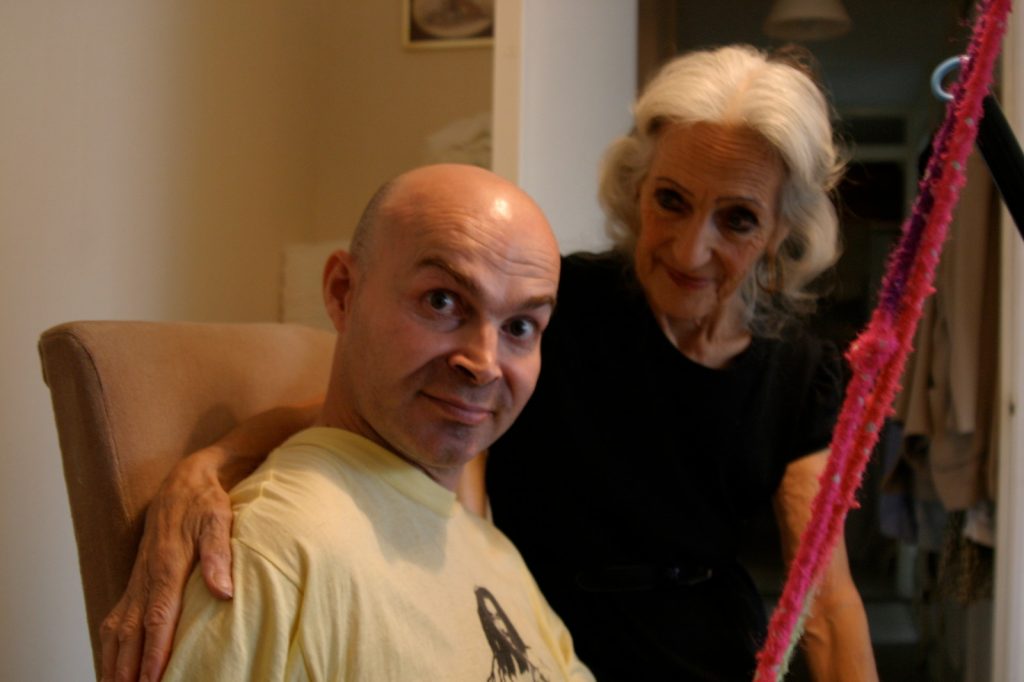Brain-damaged man failed by ‘arrogant’ jail staff dies – 25 years on from cell bunk bed fall
Experts wondered how Ryan St George was still alive as his family fought for justice
Friday, 2nd September 2022 — By Richard Osley

Ryan St George had only been due to serve a matter of weeks in prison
NEARLY 25 years ago, a priest arrived to give Ryan St George the “last rites”. In a scandal which will forever shame the UK prison service, he had been left starved of oxygen after a fall from a top bunk bed in his cell at Brixton jail during an epileptic seizure.
His body slowly shutting down with every second his airways were blocked, medics believed his was a lost cause.
Somehow he survived, but he was left with one of the worst cases of brain damage ever seen in this country. Experts wondered how he was still alive. And it was only this week – two and a half decades later – that his family delivered the sad news that Mr St George, 53, had passed away. In the cruellest irony, his airway had become blocked again, choking as he ate.
For nearly all of the time he has been largely confined to a chair and unable to speak, his aunt Margaret – now 90 – had provided bedside care for him.
On the day of his death, she had been away for two days after needing treatment for a fall of her own. More care contractors had been arranged during her absence. Relatives were gathering for the funeral yesterday (Wednesday).
Mr St George had lived in an adapted flat in Holmes Road, Kentish Town, since a near £5million compensation payment from the Home Office was ordered to be paid by a High Court judge in 2010. It is the largest settlement ever given to an injured inmate and needed to cover the huge care needs.
But even in that moment, Mr St George was still treated unfairly. Several national newspapers ran with variations on the headline: “£4.7million for lag who fell out of bed.”
The Sun squeezed the story into 100 words with the heading: “£4m junkie win.”
In doing so, most of them hardly grasped the catalogue of negligence at the prison and the seriousness of the injuries sustained. Before the conclusion of the case, Mr St George had been in a care home in Swiss Cottage – and then at Margaret’s own flat in Castlehaven Road; she had just an hour or so of specialist care help each day.
“I couldn’t just leave him,” she once told the New Journal. “If they had acted even just a little bit quicker then maybe Ryan would be able to say a few words, but he can’t.”
Many people may remember seeing the pair in Kentish Town Road with Margaret pushing her nephew in a special wheelchair. In one awful episode, the government asked him to prove he was not fit to work and he had to be helped to the job centre.
When we visited him, his line of vision could make it seem like he understood what was happening and he had a firm grip which could be hard to loosen if he held onto you, but there was never any hope of a recovery.
The slow wait for some form of justice over his fall in the prison required reams of paperwork and endless days in court but his father, David St George, who worked for years as the Old Bailey’s best-known court reporter, persevered alongside lawyers from Hodge, Jones and Allen.
It was the legal firm in North Gower Street which had to trace witnesses themselves – described as an “Inspector Morse” effort by one of the lead lawyers on the case.
“This case has taken a very long time. It’s not about the money but the duty prison staff have to all inmates especially the vulnerable,” David St George said. “Staff failed to acknowledge they were at fault and a lesson needs to be learned. Nobody has ever actually apologised.”
He described the response by prison authorities as a “couldn’t care less attitude”. The compensation package, paid in installments, was due to cover the need for care. Mr St George had not committed the worst of crimes.
Some might have argued he should not have been given a custodial sentence at all after being told to serve a matter of weeks for shoplifting batteries. It was often noted afterwards by his relatives that it turned out to be something more like a life sentence.
A former William Ellis schoolboy, he had grown up in the Kentish Town area.
But, as a big football fan, he would always point out that he was a Wimbledon FC supporter rather than a fan of one of the north London teams. He had been struggling with alcohol and drug use before his arrest. When arriving at Brixton prison, he had told staff that he was prone to seizures but was later assigned a top bunk.
On November 3, 1997, he fell six feet onto the hard floor surface, cracking his head open. Unforgivably, it was more than half an hour later before an ambulance was called and when it did arrive there were hold-ups at the gate.
Mr Justice Mackay said in his final ruling: “The ambulance was not called for 39 minutes after the event, despite the common sense view being formed within a minute or so that he would have to go to hospital. When the ambulance crew arrived, they were unable to drive the ambulance through the gates, despite the person who made the 999 call asking for the ambulance to be met at the gates and being assured that it would be”
When they arrived, they found Mr St George, as they put it, in as bad a state as a person can be without being dead. The scene was chaotic.
He added: “The only information the ambulance crew got was from the other inmates surrounding him.”
The delays and legal prevarication by the Home Office only added to the family’s strain. It repeatedly hired lawyers to fight the claim and then argue that liability should be reduced due to Mr St George’s history of drug use, even though it was known that his time inside would be a withdrawal from substances – usually a reason for efforts to help with the effects of this. The final judgment could hardly have been more damning, however.
“The ambulance was kept waiting at a time when speed was of the essence, by what the prison governor called the arrogant and unacceptable attitude of a particular prison officer who refused to accompany the ambulance,” Mr Justice Mackay said.
Now his family face a new quest in finding out what exactly happened to Mr St George on the day he choked. Relatives have been told that something was found in his throat but want further details and are awaiting more pathology reports.
Unable to look after himself, food needed to be cut into small pieces for his consumption.
“People die in sad circumstances, but we would like to know about what happened on the day as, after all these years, his auntie was unable to be there that day,” said David St George.
Police and the coroner’s office are understood to have looked at the circumstances of his death.
I’ve never met a woman like Aunt Margaret
AS a local paper journalist chronicling Camden through the years, you have a privilege to meet people during their highs and lows, at times of celebration and tragedy. I’ve been doing it for 20 years but I can honestly say I have never met anybody like Margaret St George in Kentish Town.

Ryan St George with his aunt Margaret
While the world moved on after Ryan St George’s fall and the national press headed onto the next story, her extraordinary selflessness carried on out of sight.
In a world where people can sometimes win awards and acclamation for doing very little, and some are lifted above others by nominating each other for honours of the empire, it is actually everyday heroes like the 90-year-old who deserve our admiration most.
As her brother, David – a friend of this newspaper after decades of filing reports from the Old Bailey – fought for justice for Ryan through the courts, she gave up her life to care for her brain-damaged nephew for what has been a quarter of a century.
Despite her age, she spent every day helping a man who had been robbed of his ability to do just about anything. It was long overdue when they were able to become flatmates in a special home in Holmes Road with the use of the compensation package.
It would have happened sooner if the Home Office had not been so unreasonably combative in court. It was impossible to know what Ryan could understand but there must have been some warmth taken from the undying love of his aunt by his bedside.
If the council’s old unsung heroes awards were still going now, she would be my first nomination. Not that she would like the fuss. Her panic when we asked for a photo for the CNJ always made me smile
Yet when you visited, she always offered tea and food, as if she didn’t have enough to do. She was rightly recognised even by the Home Office’s counsel in the legal proceedings with her dedication described as “quite remarkable”.
Nobody could disagree.
RICHARD OSLEY, EDITOR